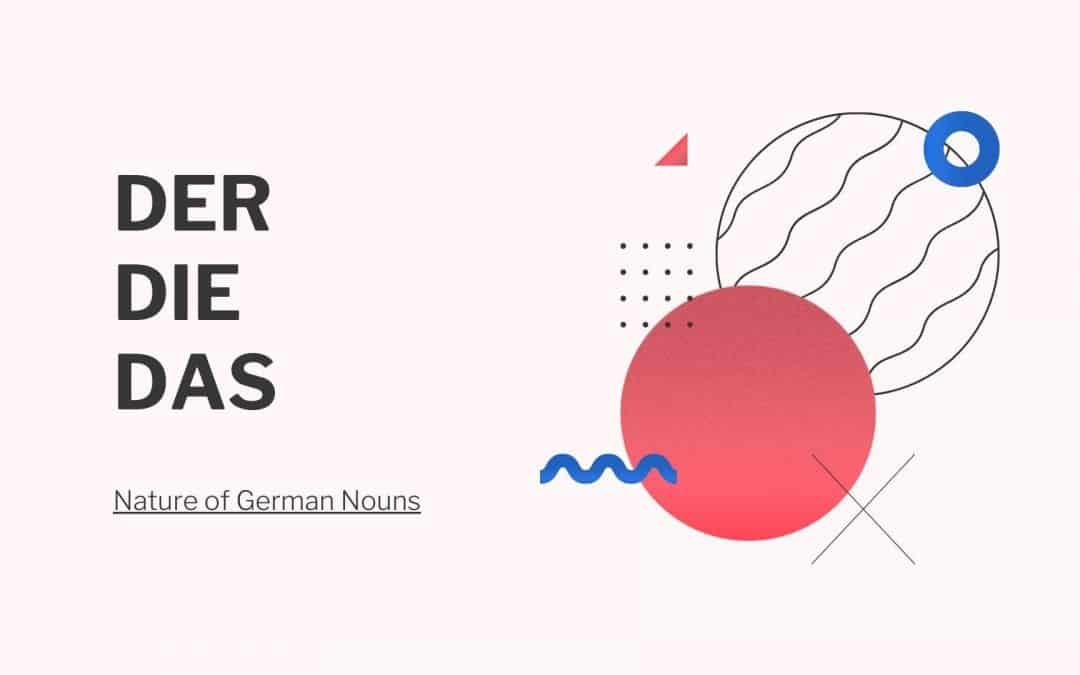The gender of nouns:
It is possible for German nouns to be either masculine, feminine, neuter or plural. We can identify this from the article in front of the noun. These are der, die, das or die (in the plural). For example:
Der Mann
Die Frau
Das Auto
Die Katzen
Note how in the singular form, ‘the cat’ would be ‘die Katze’ (feminine). Thus, plural nouns often change their ending or form from the singular. Such is the nature of German nouns.
But how do we know the gender of the nouns?
Sometimes… it isn’t just a guessing game!
We can sometimes tell the gender of a noun by some simple rules:
1. If the noun ends in -keit, it is usually feminine. For example:
- die Freundlichkeit – kindness
- die Fähigkeit – ability
- die Einsamkeit – loneliness
2. This can also be the same for nouns ending in -ung, -schaft, -tät, -tion
- die Teilung – division
- die Entscheidung – decision
- die Mannschaft – team / die Freundschaft – friendship
- die Identität – identity / die Nationalität – nationality
- die Nation – nation / die Tradition – tradition
3. If the noun ends in -ismus, -er, -ling, -er it is usually masculine:
- der Rassismus, der Feminismus, der Sexismus
- der Vater, der Drucker, der Fußballer,
- der Schmetterling, der Lehrling
Other helpful ways to remember masculine nouns:
- Male people = der Mann, der Präsident
- Seasons of the year = der Frühling, der Sommer, der Herbst, der Winter
- Days/months = der Montag usw, der Januar.
- Types of precipitation = der Regen, der Schnee, der Hagel
4. Neuter nouns are identified by ending in -chen, -lein, -nis, -ment, -um
- das Hänchen – chicken / das Mädchen – girl
- das Verständnis – understanding
- das Element / das Experiment / das Dokument
- das Museum / das Aquarium
Exceptions to the nature of German nouns?
Unfortunately, not every noun can follow these patterns. Otherwise, the nature of German nouns would be too simple! There are certain nouns where the specific gender that you imagine due to its English meaning is actually different.
For example, der Mann is masculine, due to it being a male person. So you would perhaps assume ‘the girl’ to be die Mädchen, but NO it is surprisingly neuter, and therefore ‘das Mädchen.’ Watch out for these!
Are things making sense?
Hopefully you can apply these rules to your every day German speaking so that you get those genders correct and it is no longer just a guessing game! But maybe this has sparked your interest to learn even more – Why not check out the online course portfolio of DAS Akademie and see what we have on offer to suit you best.

